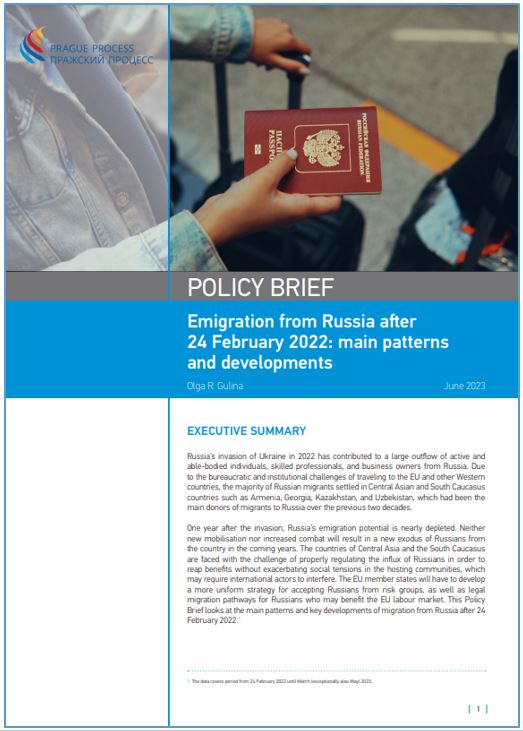Russia’s invasion of Ukraine in 2022 has contributed to a large outflow of active and able-bodied individuals, skilled professionals, and business owners from Russia. Due to the bureaucratic and institutional challenges of traveling to the EU and other Western countries, the majority of Russian migrants settled in Central Asian and South Caucasus countries such as Armenia, Georgia, Kazakhstan, and Uzbekistan, which had been the main donors of migrants to Russia over the previous two decades.
One year after the invasion, Russia’s emigration potential is nearly depleted. Neither new mobilisation nor increased combat will result in a new exodus of Russians from the country in the coming years. The countries of Central Asia and the South Caucasus are faced with the challenge of properly regulating the influx of Russians in order to reap benefits without exacerbating social tensions in the hosting communities, which may require international actors to interfere. The EU member states will have to develop a more uniform strategy for accepting Russians from risk groups, as well as legal migration pathways for Russians who may benefit the EU labour market. This Policy Brief looks at the main patterns and key developments of migration from Russia after 24 February 2022.
To preview and download the report please use this link.
Our Repository

